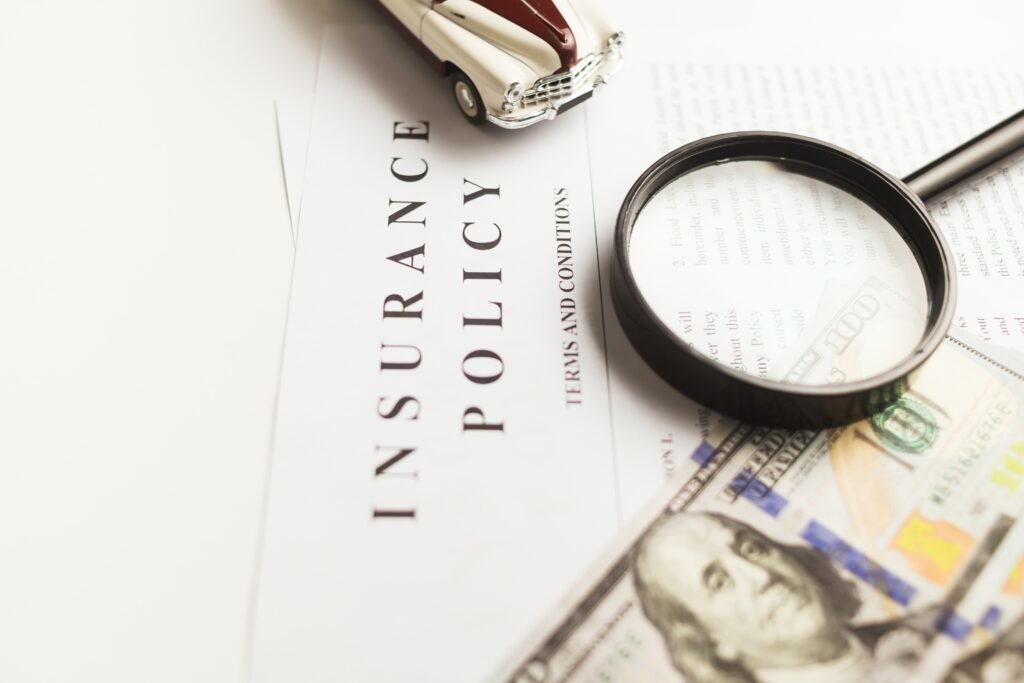Certain kinds of insurance are essential to your safety and well-being, such as car insurance and health insurance. Others are not vital but still good to have, such as home insurance. But some forms of insurance just aren’t that useful — and you may be paying for insurance you simply don’t need and are not likely to use.
With the economy being what it is, it’s a smart play to cut out as many unnecessary expenses as you can. If you’re paying for insurance you don’t need, you could end up saving a lot of money by dropping it.
With that in mind, here are eight types of insurance you may not need.
1. Mortgage Life Insurance
In case you’re not familiar, mortgage life insurance pays off your mortgage in the case of death or disability. While it sounds appealing at first, it’s actually less than ideal. Mortgage life insurance is narrow in scope — a surviving spouse or family member is going to have to pay more bills than just the mortgage. A good term life insurance policy is more flexible and, ideally, should cover the mortgage as well as other bills.
2. Life Insurance After You Retire
Life insurance is there to help take care of your surviving loved ones after you pass, and so there are a lot of good reasons to keep it, even after retirement. However, whether or not it’s worth keeping depends on your financial situation. If you have no debt, few dependents, and outside income after retirement, life insurance may be superfluous. But if you look at the numbers and find your family might struggle to make ends meet after you’re gone, then keeping that life insurance policy is probably the best bet.
3. Travel and Flight Insurance
If you travel a lot, it may sound like a great idea to have some extra insurance “just in case.” But it’s possible you could be doubling up on insurance that’s already in an existing policy. Before you spend money on travel insurance, check your existing health and life insurance plans. It’s quite possible your existing life or health insurance will have you covered in case the worst happens. Also, if you happen to book tickets, travel arrangements, or lodging with a credit card, your credit card company may automatically offer travel protection. In that case, additional travel insurance may be a waste of money — but keep in mind those protections only apply if you use that card to pay for those travel arrangements.
4. Collision and Comprehensive Car Insurance
Cutting back on auto coverage is one of the easiest ways you can trim down your insurance bill. A common way to do this is to eliminate collision and comprehensive car insurance to leave only liability insurance. Why? Because if the car is older and has a low market value, the amount you pay in premiums might be more than you’d get in compensation from the insurance company. As a matter of fact, New Hampshire doesn’t legally mandate car insurance either, although you’d be left on the hook for thousands of dollars if you’re in an at-fault accident. But there’s good news if you’re looking for cheap New Hampshire car insurance. According to Renata Balasco at The Zebra, you can take out minimum liability coverage, which is fairly inexpensive.
5. Extended Warranties
Extended warranty offers have almost become something of a bane when it comes to large purchases — it’s common to be asked if you want to purchase some extra protection for that big-ticket item. But is it necessary? In most cases, the answer is no. This is another case where protection tends to overlap. Your purchase likely already comes with a warranty, and extended warranties often don’t cover everything that could possibly go wrong with a device. Not only that, but your credit card company may offer purchase protection as well. In short, extended warranties are expensive and often a waste of cash.
6. Cancer and Disease Insurance
It’s reasonable to want extra protection against potentially devastating diseases like cancer, and so the lure of extra insurance for those maladies makes sense. However, this sort of insurance represents a sort of gamble: you’re taking a chance that certain diseases might occur in your life, and are insuring against them piecemeal instead of having better coverage overall. Rather than purchasing disease insurance policies a la carte, consider upgrading your existing medical policy instead — one that will cover your bills regardless of the problem you’re facing.
7. Guaranteed Asset Protection (GAP)
Guaranteed asset protection (GAP) insurance is a policy add-on for car owners who still have a loan on their car. In case of an accident that totals the vehicle, GAP insurance will cover the difference between what the insurance company will pay in compensation and the amount you owe on the loan, so you don’t end up making loan payments for a destroyed car. GAP insurance can be a great investment at first, but if your loan balance is near the car’s current market value, it’s no longer serving any real purpose and should be dropped.
8. Cell Phone Insurance
Many of us have been in a situation where we’ve dropped our phone and cracked the screen — or worse, made the phone entirely unusable. With phones being as expensive as they are, it makes perfect sense to want to take out some extra insurance. But a lot of the time, additional cell phone insurance isn’t necessary. Statistically speaking, most people upgrade their phones before the standard warranty runs out, making insurance somewhat superfluous. It’s also not a good investment if you don’t use your phone very much, or if you have an inexpensive phone that won’t break the bank to replace. In general, cell phone insurance is primarily for people who have the latest and greatest phone and can’t afford to be without it. If your phone is vital to your work, cell phone insurance is a good idea. Otherwise, you can safely skip it.




